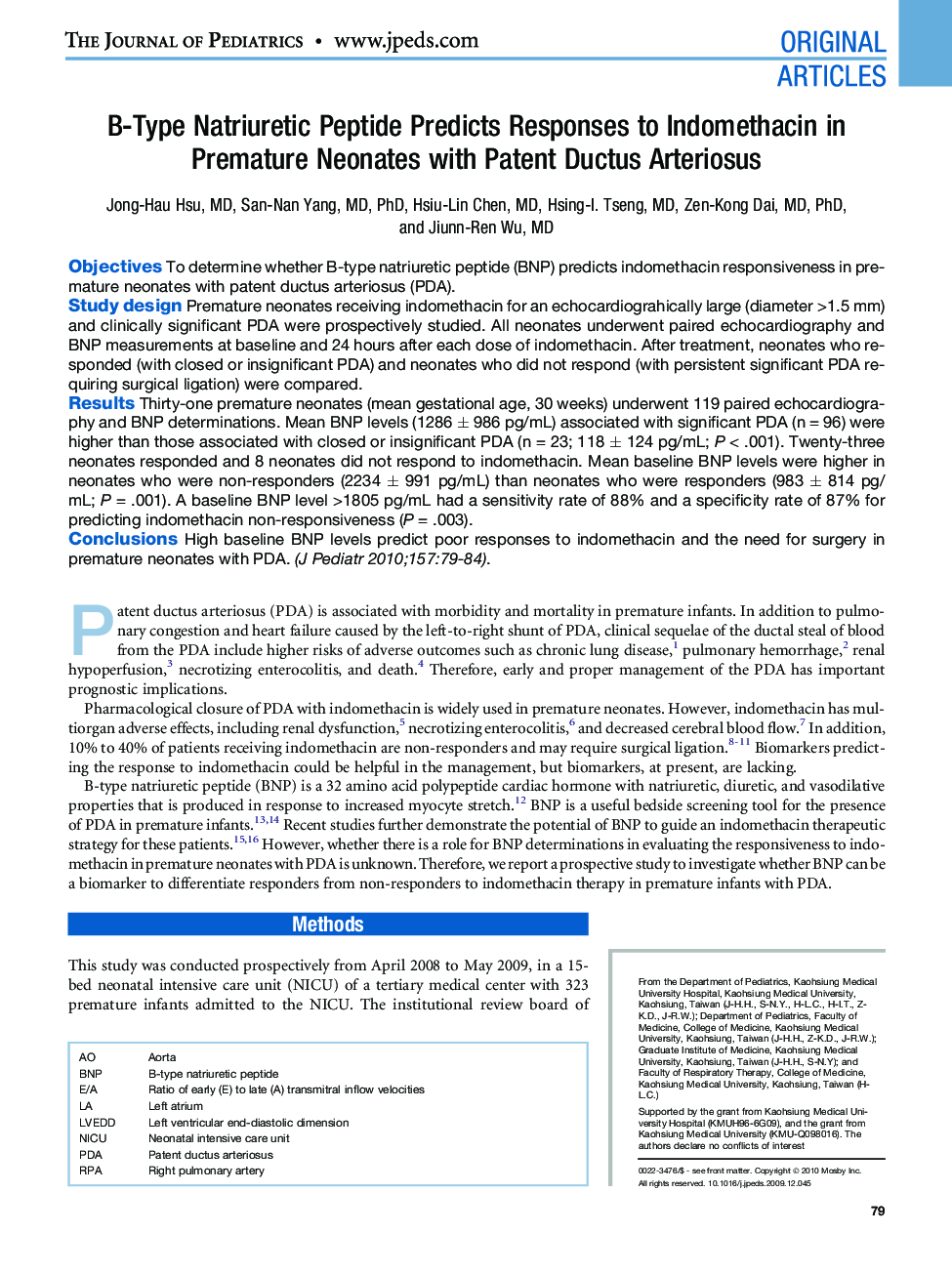| Article ID | Journal | Published Year | Pages | File Type |
|---|---|---|---|---|
| 4165945 | The Journal of Pediatrics | 2010 | 6 Pages |
ObjectivesTo determine whether B-type natriuretic peptide (BNP) predicts indomethacin responsiveness in premature neonates with patent ductus arteriosus (PDA).Study designPremature neonates receiving indomethacin for an echocardiograhically large (diameter >1.5 mm) and clinically significant PDA were prospectively studied. All neonates underwent paired echocardiography and BNP measurements at baseline and 24 hours after each dose of indomethacin. After treatment, neonates who responded (with closed or insignificant PDA) and neonates who did not respond (with persistent significant PDA requiring surgical ligation) were compared.ResultsThirty-one premature neonates (mean gestational age, 30 weeks) underwent 119 paired echocardiography and BNP determinations. Mean BNP levels (1286 ± 986 pg/mL) associated with significant PDA (n = 96) were higher than those associated with closed or insignificant PDA (n = 23; 118 ± 124 pg/mL; P < .001). Twenty-three neonates responded and 8 neonates did not respond to indomethacin. Mean baseline BNP levels were higher in neonates who were non-responders (2234 ± 991 pg/mL) than neonates who were responders (983 ± 814 pg/mL; P = .001). A baseline BNP level >1805 pg/mL had a sensitivity rate of 88% and a specificity rate of 87% for predicting indomethacin non-responsiveness (P = .003).ConclusionsHigh baseline BNP levels predict poor responses to indomethacin and the need for surgery in premature neonates with PDA.
